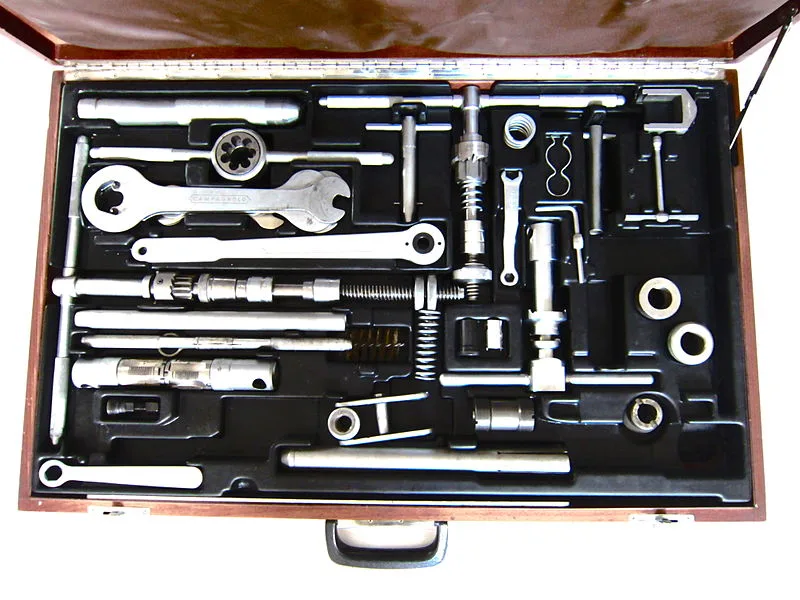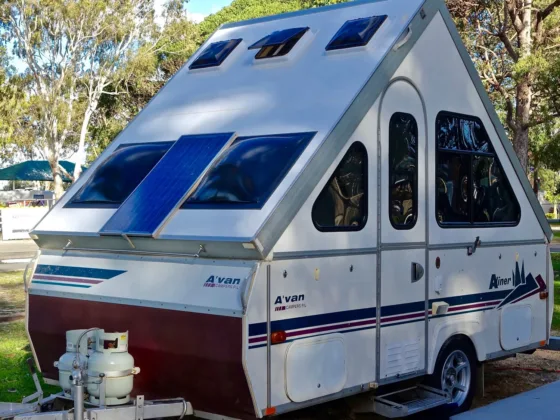Table of Contents Show
Using the right tool for the job will achieve a much better result than just using whatever you have to hand. However, it can be confusing as to which tools you will need for DIY tasks around the house due to the vast number available. Although there are many preassembled toolkits that you can buy, investing in these essential tools will be more worthwhile:
1. Tape Measure
Even though it may be tempting to try to ‘eyeball’ when measuring, having a tape measure can ensure accuracy and potentially save you money when buying things that require you to provide measurements.
You may already own a small, fabric tape measure from sewing or mending clothes, but a metal tape measure is much sturdier and usually capable of measuring much longer distances.
Furthermore, having a retractable tape measure makes it easy to take with you to check the dimensions of furniture when shopping, and it will also have a button to help hold the tape in place.
2. Screwdriver
Due to the sheer variety of screws that are used, you will benefit from having at least two different screwdrivers in your toolkit if you do not want to buy a set. A crosshead screwdriver is the most commonly used type, followed by flathead screwdrivers which can be used for a range of applications and a set of mini screwdrivers may also prove helpful for smaller-scale screws. Alternatively, you can buy a multi-tip model that has interchangeable heads so it can be customized according to the screws being used, and all of the attachments will usually be stored in the handle if storage is an issue.
3. Pliers
Having several different pairs of pliers in your toolbox will be handy for a variety of DIY and other jobs around the house. Long-nosed pliers will be essential as you’ll find these are the pair that you use the most, but you should invest in a heavier, grooved pair that can help with adjustments or removing screws and staples. It may also be worth having a pair of diagonal pliers or wire cutters, as these are suitable for cutting through wires and rewiring plugs and will come in handy for any craft projects.
4. Spirit Level
If you intend to hang artwork or put up shelves on your walls, a spirit level is a must-have to ensure that these are installed straight. A short spirit level, around six to eight inches long, will be helpful for this, whereas a longer spirit level can be used to line up side-by-side shelves or for installing outdoor paving. Alternatively, a laser level that projects lines onto your wall can also be used if you have the budget for it, as it can be set up to display all day without the need for marking your walls with a pencil.
Read Also :
5. Wrench
An adjustable wrench is a versatile tool that can be used for a range of jobs around your home. It can loosen or tighten pipes, nuts, and bolts, as well as provide extra torque when needed. However, it may be better to purchase a socket wrench set, as it only needs a single handle and allows you to change the socket heads. It will also have heads that allow you to turn things in a full circle without repositioning the tool when you would otherwise not have enough room.
6. Hammer
A claw hammer will be suitable for the vast majority of DIY jobs around the house, as it can hammer in nails, remove nails, and be used as a lever when prying materials apart. There are other types of hammers that you may also find beneficial even if they are not as essential as a claw hammer, including mallets, sledgehammers, and ball peen hammers. If you are using a hammer for a heavy-duty job, ensure that it is reasonably heavy to swing and you may want to place a block of wood between the hammer and the item you’re hammering.
7. Drill
Power tools can be costly, so if you are only going to have one in your home, it is probably best to make this a power drill, especially if it is cordless. Cordless will make it much easier to use as you are not limited by the length of the cable, and a decent model will usually have a rechargeable battery that lasts for long enough. It will also be worth it to pay extra to have a full set of bits with the drill, as the versatility of these means you can do jobs much quicker and easier than if they were completed by hand.
8. Assorted nails, screws, nuts & bolts
Although having a set with a range of different shapes and sizes may feel unnecessary, it will be useful for any DIY jobs in the future. Try to have a variety of fastenings to hand in assorted lengths such as nails, screws, nuts, bolts, and washers.
Having a supply of command hooks and strips may prove helpful for hanging artwork and frames. If the set you buy does not come already organized together in a container, consider investing in one yourself so that you are able to find things and prevent them from getting mixed together.
9. A step stool/step ladder
Although you may just use a chair, stool, or even the kitchen worktop to stand on to reach places when carrying out DIY jobs, this can actually be dangerous. Having a step stool or step ladder that you can use instead is much safer, as it creates a much studier surface and usually has a handle at the top that you can hold to keep your balance.
10. Hex Keys
These are sometimes included when you buy flat-pack furniture, but it can be helpful to have your own set to hand if there is only one size provided. Hex keys are used to drive bolts and screws into hexagonal sockets, with a 4mm L or S key being the most common. When purchasing your own, try to get a set that is attached to a ring so that it is easy to find and distinguish between sizes.
11. Utility Knife
Using kitchen knives to cut through boxes or household materials is not recommended and is unsafe. A utility knife has retractable and replaceable blades that are designed to cut through materials like cardboard, foam, tape, and rope. It is also useful for opening delivery boxes and packages without damaging the contents. The blade can be extended or retracted depending on the length you need for your project, and some models will have storage for spare blades in their handles.










